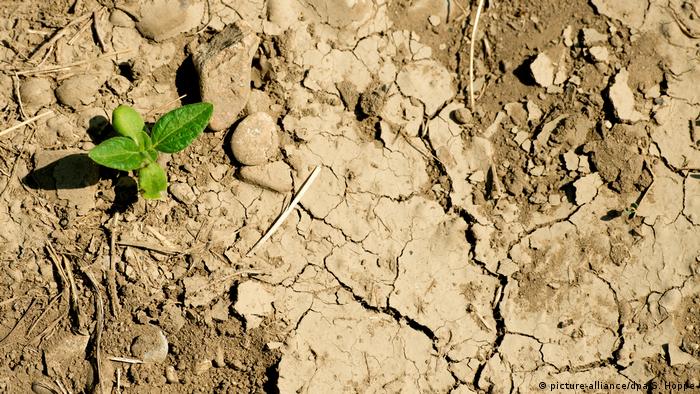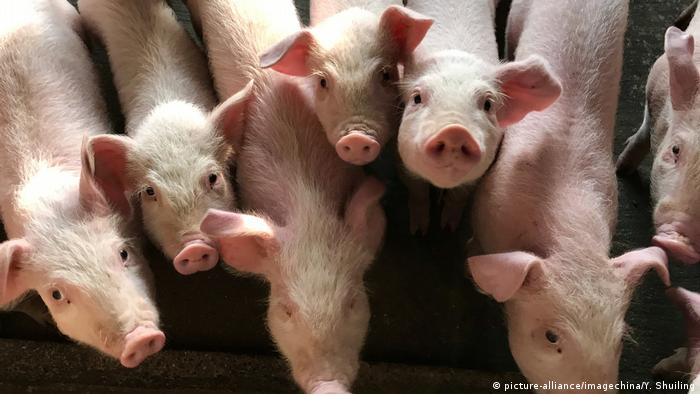rbkwp
Mythical Member
- Joined
- Aug 21, 2007
- Posts
- 85,281
- Media
- 1
- Likes
- 49,637
- Points
- 608
- Location
- Auckland, Auckland, NZ
- Sexuality
- 100% Gay, 0% Straight
- Gender
- Male
RIGHTLY SOFARMERS WORLDWIDEnot just Germany
cut out droughts/suicidesspend money on water in drought areas you F'kn governments WW
GERMANY
Germany's farmers protest for their future
Farmers feel like they are scapegoats for mainstream society's woes. While politicians respond to public demands to protect the environment, thousands of farmers give up business each year. Now they are speaking out.
![]()
Martin Buchholz's patience is wearing thin. The 56-year-old farmer in Sankt Katharinen, a town of 3,300 around half an hour south of Bonn, is the third generation to run his family's farm. But he says it's getting harder and harder to keep the business going.
"We are slowly losing interest," he says, "because we have to follow more and more requirements."
Buchholz grows barley, oats, wheat and rapeseed, mainly for animal feed, on 160 hectares (395 acres). He is one of two full-time farmers still working here. Seven families have kept up their farms as sidelines. Buchholz has one employee and hires extra help at harvest time. His costs have increased over the years as have the regulations he must follow, but he doesn't see that reflected in prices for grain.
Read more: 'We cannot live without insects
Farmers' protest: 2,000 tractors rolled into Bonn
"Thirty years ago 100 kilos of wheat would bring in 35 deutsche mark," Buchholz says. "Now 100 kilos go for €17 ($19)." That's roughly the same price without adjusting for inflation.
Buchholz's criticism is wide-ranging, but, above all, he laments a series of new regulations that he thinks will ruin farming for him and drive many more family farms to give up.
The German government agreed on legislation in September to ban the controversial herbicide glyphosate at the end of 2023 and to tighten restrictions on slurry and fertilizer, among other measures. The goal is to protect insects — which studies indicate have declined dramatically in recent decades — and the environment, by making it harder for nitrates to leak into groundwater. The European Commission had threatened Germany with legal action, including massive fines, for not addressing the problem adequately.
![]()
Martin Buchholz is skeptical about whether farming has a future in Germany
"The agriculture legislation was the catalyst," Buchholz says, referring to the protests. They began quietly when farmers around Germany began erecting wooden crucifixes on their fields. Buchholz put up some on his land too.
Farms close down in droves
Now they have begun to raise their voices. Organizing through social media under the slogan "Land schafft Verbindung," or "Land creates a bond," angry farmers kicked off a series of demonstrations in mid-October. Around 6,000 protested on Tuesday in Bonn, where Germany's Agriculture Ministry is located, and thousands of others did so in Munich, Hannover and more than a dozen other cities. Police said the tractor convoy into Bonn was 10 kilometers (six miles) long.
The farmers had invited Agriculture Minster Julia Klöckner, a member of Angela Merkel's conservative CDU, to the demonstration, but she didn't turn up. They were dismissive of her surrogate, Deputy Minister Onko Aeikens, whose attempts to pacify them were met with boos and whistles. Much of the crowd demonstratively turned their backs to the stage where he was speaking.
Renate Berg was one of them. She rejected Aeikens's speech, saying there was no point in listening because he was saying the same things politicians always said to appease farmers. Berg had ridden into Bonn on a tractor with her husband and son from Zülpich, 55 kilometers to the west. Her husband was a milk farmer with 100 cows until two years ago.
"It simply didn't add up anymore," she says. "Milking isn't so nice if it doesn't cover the costs." She said only one of four farms in her area still has cows. Now the Bergs make their living raising young animals for others.
![]()
"How dare you. Without farmers, no future," said one sign, echoing climate activist Greta Thunberg
The number of farms in Germany fell by more than 16 percent, to 269,800, between 2007 and 2017, the German Farmers' Association has found, reflecting an ongoing trend throughout western Europe.
Germany's farmers protest for their future | DW | 26.10.2019
cut out droughts/suicidesspend money on water in drought areas you F'kn governments WW
GERMANY
Germany's farmers protest for their future
Farmers feel like they are scapegoats for mainstream society's woes. While politicians respond to public demands to protect the environment, thousands of farmers give up business each year. Now they are speaking out.

Martin Buchholz's patience is wearing thin. The 56-year-old farmer in Sankt Katharinen, a town of 3,300 around half an hour south of Bonn, is the third generation to run his family's farm. But he says it's getting harder and harder to keep the business going.
"We are slowly losing interest," he says, "because we have to follow more and more requirements."
Buchholz grows barley, oats, wheat and rapeseed, mainly for animal feed, on 160 hectares (395 acres). He is one of two full-time farmers still working here. Seven families have kept up their farms as sidelines. Buchholz has one employee and hires extra help at harvest time. His costs have increased over the years as have the regulations he must follow, but he doesn't see that reflected in prices for grain.
Read more: 'We cannot live without insects
Farmers' protest: 2,000 tractors rolled into Bonn
"Thirty years ago 100 kilos of wheat would bring in 35 deutsche mark," Buchholz says. "Now 100 kilos go for €17 ($19)." That's roughly the same price without adjusting for inflation.
Buchholz's criticism is wide-ranging, but, above all, he laments a series of new regulations that he thinks will ruin farming for him and drive many more family farms to give up.
The German government agreed on legislation in September to ban the controversial herbicide glyphosate at the end of 2023 and to tighten restrictions on slurry and fertilizer, among other measures. The goal is to protect insects — which studies indicate have declined dramatically in recent decades — and the environment, by making it harder for nitrates to leak into groundwater. The European Commission had threatened Germany with legal action, including massive fines, for not addressing the problem adequately.

Martin Buchholz is skeptical about whether farming has a future in Germany
"The agriculture legislation was the catalyst," Buchholz says, referring to the protests. They began quietly when farmers around Germany began erecting wooden crucifixes on their fields. Buchholz put up some on his land too.
Farms close down in droves
Now they have begun to raise their voices. Organizing through social media under the slogan "Land schafft Verbindung," or "Land creates a bond," angry farmers kicked off a series of demonstrations in mid-October. Around 6,000 protested on Tuesday in Bonn, where Germany's Agriculture Ministry is located, and thousands of others did so in Munich, Hannover and more than a dozen other cities. Police said the tractor convoy into Bonn was 10 kilometers (six miles) long.
The farmers had invited Agriculture Minster Julia Klöckner, a member of Angela Merkel's conservative CDU, to the demonstration, but she didn't turn up. They were dismissive of her surrogate, Deputy Minister Onko Aeikens, whose attempts to pacify them were met with boos and whistles. Much of the crowd demonstratively turned their backs to the stage where he was speaking.
Renate Berg was one of them. She rejected Aeikens's speech, saying there was no point in listening because he was saying the same things politicians always said to appease farmers. Berg had ridden into Bonn on a tractor with her husband and son from Zülpich, 55 kilometers to the west. Her husband was a milk farmer with 100 cows until two years ago.
"It simply didn't add up anymore," she says. "Milking isn't so nice if it doesn't cover the costs." She said only one of four farms in her area still has cows. Now the Bergs make their living raising young animals for others.

"How dare you. Without farmers, no future," said one sign, echoing climate activist Greta Thunberg
The number of farms in Germany fell by more than 16 percent, to 269,800, between 2007 and 2017, the German Farmers' Association has found, reflecting an ongoing trend throughout western Europe.
Germany's farmers protest for their future | DW | 26.10.2019




























